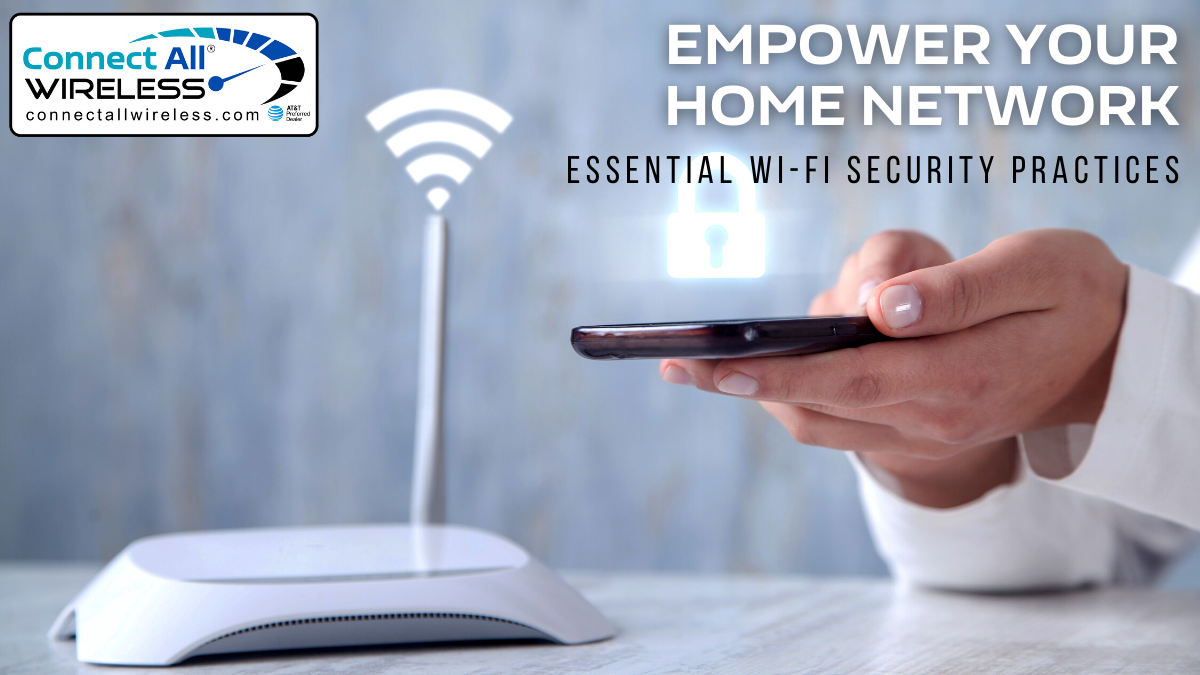Empower Your Home Network: Essential Wi-Fi Security Practices
October 28, 2023In today’s connected world, having a reliable and secure home Wi-Fi network is crucial. Whether you’re working from home, streaming your favorite shows, or connecting multiple devices, having a robust and secure network is essential. And if you’re in Michigan, where the need for high-speed Wi-Fi is paramount, it’s even more critical to ensure your network is not only fast but also secure. In this blog post, we will explore some essential Wi-Fi security practices to empower your home network for high-speed Wi-Fi in Michigan.
1. Robust Passwords Serve as Your Primary Layer of Protection
Your Wi-Fi network is only as secure as your password. Using a weak or default password is an open invitation to hackers. To ensure the security of your network, create a strong, unique password that combines letters, numbers, and special characters. Refrain from utilizing readily predictable details such as your name or date of birth. Periodically changing your password is also a good practice to keep potential intruders at bay.
2. Enable WPA3 Encryption
WPA3 is the latest and most secure encryption protocol available for Wi-Fi networks. It provides stronger protection for your network compared to its predecessors, WPA and WPA2. Check your router settings and make sure WPA3 is enabled. If your router doesn’t support WPA3, consider upgrading to a newer model that does, especially if you’re aiming for high-speed Wi-Fi in Michigan.
3. Change the Default Network Name (SSID)
The default network name or SSID (Service Set Identifier) of your Wi-Fi network is often easy to guess. Changing it to a unique and unrelated name makes it more challenging for hackers to identify your network. Avoid using your personal information in the SSID, as this can be a security risk.
4. Enable Network Encryption
In addition to WPA3, enable network encryption to add an extra layer of security. Network encryption ensures that data transmitted between your devices and the router is scrambled and protected from interception. Options like WEP, WPA, and WPA2 are available, but as mentioned earlier, WPA3 is the most secure choice.
5. Update Your Router Firmware Regularly
Router manufacturers release firmware updates to address security vulnerabilities and improve performance. Regularly updating your router’s firmware is essential for keeping your network secure. Check your router’s settings and enable automatic updates if available.
6. Use a Firewall
Most modern routers have built-in firewalls that provide basic protection against threats from the internet. Ensure that your router’s firewall is enabled to block unauthorized access to your network. For advanced users, consider setting up additional firewall protection for an added layer of security.
7. Implement MAC Address Filtering
Each device connected to your Wi-Fi network has a unique MAC (Media Access Control) address. You can restrict access to your network by allowing only specified MAC addresses. While this is an extra step, it can be an effective way to control who can connect to your network.
8. Set Up a Guest Network
If you have guests frequently connecting to your network, consider setting up a separate guest network. This network should have a different password, and it should be isolated from your primary network to prevent unauthorized access to your devices.
9. Disable Remote Administration
Many routers have remote administration features that allow you to manage your network from outside your home. While this can be convenient, it’s also a security risk. It’s best to disable this feature unless you have a specific need for it.
10. Regularly Monitor Network Activity
Keep an eye on the devices connected to your network and review their activity logs. Should you detect any unfamiliar or questionable devices, make sure to conduct an inquiry and implement the necessary measures to safeguard your network.
11. Secure Your Devices
Your network is only as secure as the devices connected to it. Ensure that your computers, smartphones, and other devices have up-to-date antivirus and security software. Regularly update the operating systems and applications to patch any known security vulnerabilities.
12. Use a VPN for Added Security
A Virtual Private Network (VPN) can add an extra layer of security by encrypting your internet traffic and masking your IP address. Using a VPN is especially important when connecting to public Wi-Fi networks, but it can also enhance your home network’s security.
Conclusion
Securing your home network is essential for ensuring high-speed Wi-Fi in Michigan or anywhere else. By following these essential Wi-Fi security practices, you can empower your network to withstand potential threats and provide a fast and reliable internet connection for all your online activities. Remember that security is an ongoing process, so regularly reviewing and updating your network’s security measures is vital to maintaining a safe and high-speed Wi-Fi experience.


